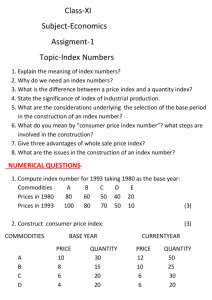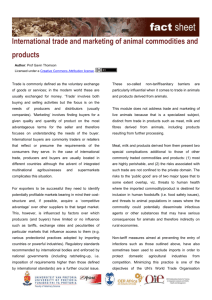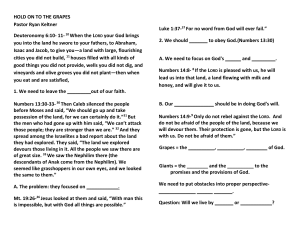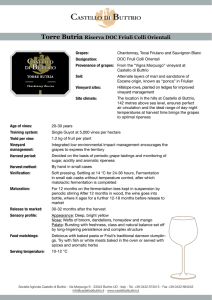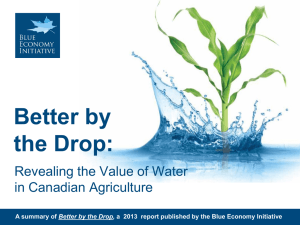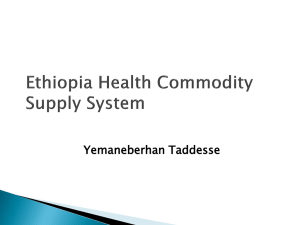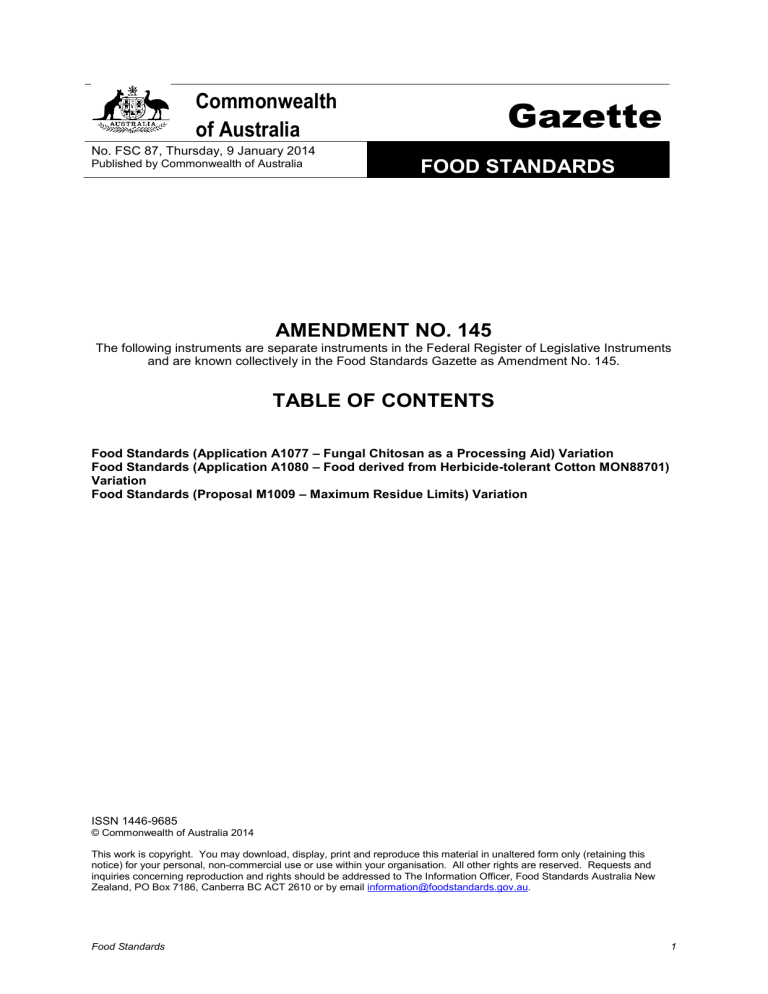
Commonwealth
of Australia
Gazette
No. FSC 87, Thursday, 9 January 2014
Published by Commonwealth of Australia
FOOD STANDARDS
AMENDMENT NO. 145
The following instruments are separate instruments in the Federal Register of Legislative Instruments
and are known collectively in the Food Standards Gazette as Amendment No. 145.
TABLE OF CONTENTS
Food Standards (Application A1077 – Fungal Chitosan as a Processing Aid) Variation
Food Standards (Application A1080 – Food derived from Herbicide-tolerant Cotton MON88701)
Variation
Food Standards (Proposal M1009 – Maximum Residue Limits) Variation
ISSN 1446-9685
© Commonwealth of Australia 2014
This work is copyright. You may download, display, print and reproduce this material in unaltered form only (retaining this
notice) for your personal, non-commercial use or use within your organisation. All other rights are reserved. Requests and
inquiries concerning reproduction and rights should be addressed to The Information Officer, Food Standards Australia New
Zealand, PO Box 7186, Canberra BC ACT 2610 or by email information@foodstandards.gov.au.
Food Standards
1
Food Standards (Application A1077 – Fungal Chitosan as a Processing Aid) Variation
The Board of Food Standards Australia New Zealand gives notice of the making of this variation under
section 92 of the Food Standards Australia New Zealand Act 1991. The Standard commences on the
date specified in clause 3 of this variation.
Dated 3 January 2014
Standards Management Officer
Delegate of the Board of Food Standards Australia New Zealand
Note:
This variation will be published in the Commonwealth of Australia Gazette No. FSC 87 on 9 January
2014. This means that this date is the gazettal date for the purposes of clause 3 of the variation.
Food Standards
2
1
Name
This instrument is the Food Standards (Application A1077 – Fungal Chitosan as a Processing Aid)
Variation.
2
Variation to Standards in the Australia New Zealand Food Standards Code
The Schedule varies the Standards in the Australia New Zealand Food Standards Code.
3
Commencement
The variations commence on the date of gazettal.
SCHEDULE
[1]
Standard 1.3.3 is varied by inserting in alphabetical order in Table to clause 14
“
Chitosan sourced from Aspergillus niger
Manufacture of wine, beer, cider,
spirits and food grade ethanol
GMP
”
[2]
Standard 4.5.1 is varied by inserting in alphabetical order in the Table to clause 4 “Chitosan
sourced from Aspergillus niger”
Food Standards
3
Food Standards (Application A1080 – Food derived from Herbicide-tolerant Cotton MON88701)
Variation
The Board of Food Standards Australia New Zealand gives notice of the making of this variation under
section 92 of the Food Standards Australia New Zealand Act 1991. The Standard commences on the
date specified in clause 3 of this variation.
Dated 3 January 2014
Standards Management Officer
Delegate of the Board of Food Standards Australia New Zealand
Note:
This variation will be published in the Commonwealth of Australia Gazette No. FSC 87 on 9 January
2014. This means that this date is the gazettal date for the purposes of clause 3 of the variation.
Food Standards
4
1
Name
This instrument is the Food Standards (Application A1080 - Food derived from Herbicide-tolerant
Cotton MON88701) Variation
2
Variation to Standards in the Australia New Zealand Food Standards Code
The Schedule varies a Standard in the Australia New Zealand Food Standards Code.
3
Commencement
This variation commences on the date of gazettal.
SCHEDULE
[1]
Standard 1.5.2 is varied by inserting in numerical order in the Schedule
“
3.13
Food derived from herbicide-tolerant cotton
line MON88701
”
Food Standards
5
Food Standards (Proposal M1009 – Maximum Residue Limits) Variation
The Board of Food Standards Australia New Zealand gives notice of the making of this variation under
section 92 of the Food Standards Australia New Zealand Act 1991. The Standard commences on the
date specified in clause 3 of this variation.
Dated 3 January 2014
Standards Management Officer
Delegate of the Board of Food Standards Australia New Zealand
Note:
This variation will be published in the Commonwealth of Australia Gazette No. FSC 87 on 9 January
2014. This means that this date is the gazettal date for the purposes of clause 3 of the variation.
Food Standards
6
1
Name
This instrument is the Food Standards (Proposal M1009 – Maximum Residue Limits) Variation.
2
Variation to Standards in the Australia New Zealand Food Standards Code
The Schedule varies a Standard in the Australia New Zealand Food Standards Code.
3
Commencement
The variation commences on the date of gazettal.
SCHEDULE
[1]
Standard 1.4.2 is varied by
[1.1]
omitting from Schedule 1 all entries for the following chemicals
Bromopropylate
Carbetamide
Ethametsulfuron methyl
Fluazifop–butyl
Isofenphos
Mecoprop
Naptalam
Pyrazophos
Spiramycin
Thiophanate-methyl
Vamidothion
[1.2]
inserting in alphabetical order in Schedule 1
“
“
1,3-dichloropropene
1,3-dichloropropene
Grapes
Metaflumizone
Sum of metaflumizone, its E and Z isomers and its
metabolite 4-{2-oxo-2-[3-(trifluoromethyl)
phenyl]ethyl}-benzonitrile expressed as
metaflumizone
Grapes
0.04
0.018
”
“
Dinotefuran
Sum of dinotefuran and its metabolites DN, 1methyl-3-(tetrahydro-3-furylmethyl)guanidine and
UF, 1-methyl-3-(tetrahydro-3-furylmethyl)urea
expressed as dinotefuran
Grapes
0.9
”
“
Quinclorac
Quinclorac
Cranberry
1.5
”
“
”
“
Fluopicolide
Fluopicolide
Grapes
2
”
“
Mepanipyrim
Mepanipyrim
Strawberry
Thiophanate-methyl
Sum of thiophanate-methyl and 2aminobenzimidazole,expressed as thiophanatemethyl
Cherries
20
Nectarine
3
Peach
3
”
2
”
Food Standards
7
“
Zoxamide
Zoxamide
Grapes
3
”
[1.3]
inserting in Schedule 1 for each of the following chemicals the foods and associated MRLs in
alphabetical order
Abamectin
Sum of avermectin B1a, avermectin B1b and (Z)-8,9
avermectin B1a, and (Z)-8,9 avermectin B1b
Boscalid
Commodities of plant origin: Boscalid
Commodities of animal origin: Sum of boscalid, 2chloro-N-(4′-chloro-5-hydroxybiphenyl-2-yl)
nicotinamide and the glucuronide conjugate of 2chloro-N-(4′-chloro-5-hydroxybiphenyl-2-yl)
nicotinamide, expressed as boscalid equivalents
“
Grapes
0.02
”
Acequinocyl
Sum of acequinocyl and its metabolite 2-dodecyl-3hydroxy-1,4-naphthoquinone, expressed as
acequinocyl
“
Blackberries
Blueberries
Boysenberry
Raspberries, red, black
Strawberry
“
Grapes
1.6
”
”
Acetamiprid
Commodities of plant origin: Acetamiprid
Commodities of animal origin: Sum of acetamiprid
and N-demethyl acetamiprid ((E)-N1-[(6-chloro-3pyridyl)methyl]-N2-cyanoacetamidine), expressed as
acetamiprid
Bupirimate
Bupirimate
“
Strawberry
Carbendazim
Sum of carbendazim and 2-aminobenzimidazole,
expressed as carbendazim
0.35
”
“
Chives
Peppers
Peppers, Chili (dry)
Spices
Azinphos-methyl
Azinphos-methyl
“
Strawberry
1
Azoxystrobin
Azoxystrobin
*0.1
*0.1
20
*0.1
”
”
Chlorpyrifos
Chlorpyrifos
“
“
Blackberries
Boysenberry
Peppers
Raspberries, red, black
Spices
Strawberry
1
”
“
Grapes
6
13
6
6
10
Blackberries
Spices
5
5
3
5
*0.1
10
0.5
5
”
Clofentezine
Clofentezine
“
”
Grapes
1
Bifenthrin
Bifenthrin
”
“
Blackberries
Blueberries
Boysenberry
Strawberry
Cyfluthrin
Cyfluthrin, sum of isomers
1
1.8
1
1
“
Grapes
1
”
”
Food Standards
8
Cyhalothrin
Cyhalothrin, sum of isomers
Fipronil
Sum of fipronil, the sulphenyl metabolite (5-amino-1[2,6-dichloro-4-(trifluoromethyl)phenyl]-4[(trifluoromethyl) sulphenyl]-1H-pyrazole-3carbonitrile), the sulphonyl metabolite (5-amino-1[2,6-dichloro-4-(trifluoromethyl)phenyl]-4[(trifluoromethyl)sulphonyl]-1H-pyrazole-3carbonitrile), and the trifluoromethyl metabolite (5amino-4-trifluoromethyl-1-[2,6-dichloro-4(trifluoromethyl)phenyl]-1H-pyrazole-3-carbonitrile)
“
Berries and other small fruits
0.2
”
Cyprodinil
Cyprodinil
“
Blueberries
Boysenberry
3
10
“
Peppers, Chili
*0.005
”
”
Dicamba
Sum of dicamba, 3,6-dichloro-5-hydroxy-2methoxybenzoic acid and 3,6-dichloro-2hydroxybenzoic acid, expressed as dicamba
Flubendiamide
Commodities of plant origin: Flubendiamide
Commodities of animal origin: Sum of flubendiamide
and 3-iodo-N-(2-methyl-4-[1,2,2,2-tetrafluoro-1(trifluoromethyl)ethyl]phenyl)phthalimide, expressed
as flubendiamide
“
Soya bean
10
”
“
Grapes
Difenoconazole
Difenoconazole
”
“
Chives
Fludioxonil
Commodities of animal origin: Sum of fludioxonil
and oxidisable metabolites, expressed as fludioxonil
Commodities of plant origin: Fludioxonil
2
”
Fenbuconazole
Fenbuconazole
“
Boysenberry
“
Blueberries
1.4
5
0.3
”
Hexythiazox
Hexythiazox
”
Fenpropathrin
Fenpropathrin
“
Berries and other small fruits
“
Grapes
1
5
”
Imidacloprid
Sum of imidacloprid and metabolites containing the
6-chloropyridinylmethylene moiety, expressed as
imidacloprid
”
Fenpyroximate
Fenpyroximate
“
“
Strawberry
1
Berries and other small fruits
[except blueberries; cranberry;
grapes; strawberry]
Strawberry
”
Fenthion
Sum of fenthion, its oxygen analogue, and their
sulfoxides and sulfones, expressed as fenthion
0.5
”
“
Apricot
Cherries
Melons, except watermelon
Nectarine
Peach
Peppers, Chili
Peppers, Sweet
Plums
Watermelon
5
Kresoxim-methyl
Commodities of plant origin: Kresoxim-methyl
Commodities of animal origin: Sum of a-(p-hydroxyotolyloxy)-o-tolyl (methoxyimino) acetic acid and
(E)-methoxyimino[a-(o-tolyloxy)-o-tolyl]acetic acid,
expressed as kresoxim-methyl
T0.2
T0.4
T3
T0.25
T0.2
T7
T0.5
T0.25
T3
“
Grapes
1
”
Metalaxyl
Metalaxyl
”
“
Chives
Coriander (leaves, stem, roots)
Food Standards
2
2
9
Spices
*0.1
Pyraclostrobin
Commodities of plant origin: Pyraclostrobin
Commodities of animal origin: Sum of pyraclostrobin
and metabolites hydrolysed to 1-(4-chloro-phenyl)1H-pyrazol-3-ol, expressed as pyraclostrobin
”
Myclobutanil
Myclobutanil
“
“
Blackberries
Boysenberry
Raspberries, red, black
Blackberries
Blueberries
Boysenberry
Raspberries, red, black
Strawberry
2
2
2
”
4
4
4
4
1
Permethrin
Permethrin, sum of isomers
”
Pyriproxyfen
Pyriproxyfen
“
Peppers, Chili (dry)
10
“
Grapes
”
Phosmet
Sum of phosmet and its oxygen analogue,
expressed as phosmet
”
Spirodiclofen
Spirodiclofen
“
Cranberry
2.5
10
“
Grapes
2
”
Pirimicarb
Sum of pirimicarb, demethyl-pirimicarb and the Nformyl-(methylamino) analogue
(demethylformamido-pirimicarb), expressed as
pirimicarb
”
Tebuconazole
Tebuconazole
“
Blackberries
1
“
Fruit [except strawberry]
Peppers
Spices
Strawberry
0.5
1
*0.05
3
”
Thiacloprid
Thiacloprid
“
Strawberry
”
”
Procymidone
Procymidone
Thiamethoxam
Commodities of plant origin: Thiamethoxam
Commodities of animal origin: Sum of thiamethoxam
and N-(2-chloro-thiazol-5-ylmethyl)-N′-methyl-N′nitro-guanidine, expressed as thiamethoxam
“
Strawberry
*0.02
”
Propiconazole
Propiconazole
“
Blackberries
Boysenberry
Raspberries, red, black
Spices
1
1
1
1
*0.1
“
Berries and other small fruits
[except grapes]
Grapes
0.5
0.2
”
”
[1.4]
omitting from Schedule 1 for each of the following chemicals the foods and associated MRLs
Food Standards
10
Abamectin
Sum of avermectin B1a, avermectin B1b and (Z)-8,9
avermectin B1a, and (Z)-8,9 avermectin B1b
Methabenzthiazuron
Methabenzthiazuron
“
“
Ground cherries
Lemon balm
Melons, except watermelon
Mizuna
Passionfruit
Rucola (rocket)
Watermelon
Cereal grains
Grapes
T0.01
T0.5
T0.02
T0.5
T0.1
T0.5
T0.02
*0.05
*0.1
”
Methomyl
Methomyl
“
Mango
T*0.05
”
”
Closantel
Closantel
Naphthalophos
Naphthalophos
“
Cattle fat
Cattle kidney
Cattle liver
Cattle muscle
“
T3
T3
T1
T1
Goat, edible offal of
Goat meat
*0.1
*0.1
”
Pirimicarb
Sum of pirimicarb, demethyl-pirimicarb and the Nformyl-(methylamino) analogue
(demethylformamido-pirimicarb), expressed as
pirimicarb
”
Dicamba
Sum of dicamba, 3,6-dichloro-5-hydroxy-2methoxybenzoic acid and 3,6-dichloro-2hydroxybenzoic acid, expressed as dicamba
“
“
Soya bean (immature seeds)
Fruit
10
”
”
Fenthion
Sum of fenthion, its oxygen analogue, and their
sulfoxides and sulfones, expressed as fenthion
Pirimiphos-methyl
Pirimiphos-methyl
“
Kiwifruit
“
Fig
Fruiting vegetables, cucurbits
Fruiting vegetables, other than
cucurbits
Guava
Stone fruits
0.5
2
3
5
2
”
Propazine
Propazine
“
2
5
Lupin
*0.1
”
”
Sethoxydim
Sum of sethoxydim and metabolites containing the
5-(2-ethylthiopropyl)cyclohexene-3-one and 5-(2ethylthiopropyl)-5-hydroxycyclohexene-3-one
moieties and their sulfoxides and sulfones,
expressed as sethoxydim
Hexythiazox
Hexythiazox
“
Berries and other small fruits
[except grapes]
1
”
Iprodione
Iprodione
“
Adzuki bean (dry)
Sunflower seed
Taro
T0.1
T*0.05
*0.05
”
Kitasamycin
Inhibitory substance, identified as kitasamycin
“
Poultry, edible offal of
Poultry meat
*0.2
*0.2
“
Bergamot
Burnet, salad
Chervil
Dill, seed
Fennel, bulb
Fennel, seed
Herbs [except thyme]
Kaffir lime leaves
Lemon grass
Lemon verbena (fresh weight)
Mizuna
Rose and dianthus (edible flowers)
Strawberry
Thyme
*0.1
*0.1
*0.1
*0.1
0.2
*0.1
*0.1
*0.1
*0.1
*0.1
*0.1
*0.1
0.1
0.5
”
Food Standards
”
11
Tree nuts
Spectinomycin
Inhibitory substance, identified as spectinomycin
T0.02
”
“
Goat milk
Triclabendazole
Sum of triclabendazole and metabolites oxidisable to
keto-triclabendazole and expressed as ketotriclabendazole equivalents
*2
”
Thiamethoxam
Commodities of plant origin: Thiamethoxam
Commodities of animal origin: Sum of thiamethoxam
and N-(2-chloro-thiazol-5-ylmethyl)-N′-methyl-N′nitro-guanidine, expressed as thiamethoxam
“
Cattle milk
T*0.05
”
“
Sugar cane
T*0.02
[1.5]
omitting from Schedule 1, under the entries for the following chemicals, the maximum
residue limit for the food, substituting –
Bifenthrin
Bifenthrin
Fludioxonil
Commodities of animal origin: Sum of fludioxonil
and oxidisable metabolites, expressed as fludioxonil
Commodities of plant origin: Fludioxonil
“
Cereal grains
*0.02
“
”
Carbendazim
Sum of carbendazim and 2-aminobenzimidazole,
expressed as carbendazim
Blackberries
Raspberries, red, black
5
5
”
“
Cherries
20
”
Chlorpyrifos
Chlorpyrifos
“
Strawberry
0.3
”
Cyflufenamid
Cyflufenamid
“
Grapes
0.15
”
Cyprodinil
Cyprodinil
“
Blackberries
Raspberries, red, black
Strawberry
10
10
5
”
Fenthion
Sum of fenthion, its oxygen analogue, and their
sulfoxides and sulfones, expressed as fenthion
“
Citrus fruits
Grapes
Olive oil, crude
Olives
Persimmon, Japanese
Pome fruits
T0.7
T0.2
T0.5
T0.2
T0.3
T0.25
”
Food Standards
12


